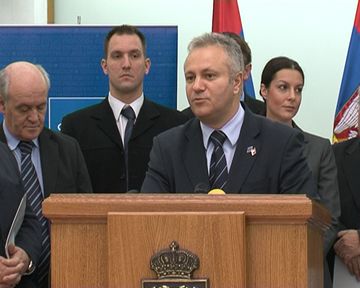- Serbia
Get to know Serbia
- Citizens
Culture and science
Health services
Pension and disability insurance
- Business
Employment
Economy
- Media
- Government
- Contact
Keep in touch
Contact form
Back
Keepin touch
Whether you have a question, comment, suggestion or any problem in the purview of the government, send us your message and we will try to respond as soon as possible. If your problem is not in our purview, we will forward your message to the relevant institution.
Q:
A:
Government aim to cut costs at all levels
Belgrade,
1 December 2009
Deputy Prime Minister and Minister of Economy and Regional Development Mladjan Dinkic today stated that the government’s goal must be to reduce expenses at all levels, including the optimisation of road construction costs.
At a press conference concerning the presentation of agreements on the allocation of funds for encouraging direct investments to 18 domestic and foreign companies, Dinkic stressed that this was not the case in the past because the funds were not used prudently, but noted that this practice has been changed.
According to him, the example of the construction of 20 kilometres of the Horgos–Novi Sad motorway must be the model for the completion of the whole of Corridor 10 and the construction of the Belgrade to Ljig motorway.
He noted that this model complied with international FIDIC standards, as well as that for the first time there was not a single annex to the contract, no belated payments to contractors and the work was completed in time.
Dinkic said that he is relatively pleased with the 2010 budget because it envisages incentives for economic development and the construction of infrastructure.
The budget development element is also present, he said, adding that savings will be made in public administration and public procurements for the state.
The budget is harmonised with the agreement the government reached with the IMF and the budget deficit has been projected to around RSD 107 billion, that is, a little over 3% of GDP. The consolidated budget deficit is projected at 4% of GDP, he explained.
The IMF’s condition was to adopt the budget two weeks before the IMF Board convenes on December 21, and we have managed to meet that deadline, Dinkic said.
The agreements on the allocation of non-refundable funds for encouraging direct investments, based on the decree on the term and manner of attracting direct investments, will enable the investment of €46 million in 13 Serbian municipalities as well as help to create 2,252 new jobs.
According to him, the example of the construction of 20 kilometres of the Horgos–Novi Sad motorway must be the model for the completion of the whole of Corridor 10 and the construction of the Belgrade to Ljig motorway.
He noted that this model complied with international FIDIC standards, as well as that for the first time there was not a single annex to the contract, no belated payments to contractors and the work was completed in time.
Dinkic said that he is relatively pleased with the 2010 budget because it envisages incentives for economic development and the construction of infrastructure.
The budget development element is also present, he said, adding that savings will be made in public administration and public procurements for the state.
The budget is harmonised with the agreement the government reached with the IMF and the budget deficit has been projected to around RSD 107 billion, that is, a little over 3% of GDP. The consolidated budget deficit is projected at 4% of GDP, he explained.
The IMF’s condition was to adopt the budget two weeks before the IMF Board convenes on December 21, and we have managed to meet that deadline, Dinkic said.
The agreements on the allocation of non-refundable funds for encouraging direct investments, based on the decree on the term and manner of attracting direct investments, will enable the investment of €46 million in 13 Serbian municipalities as well as help to create 2,252 new jobs.
-
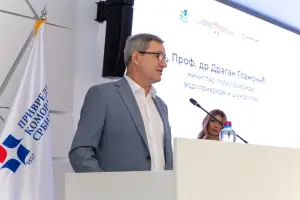 Belgrade, 11 August 2025
Belgrade, 11 August 2025Support for agricultural projects worth RSD 750 million
-
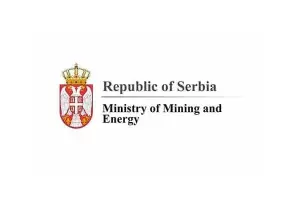 Belgrade, 21 July 2025
Belgrade, 21 July 2025Construction of oil pipeline with Hungary to begin early next year
-
 Belgrade/Athens, 17 July 2025
Belgrade/Athens, 17 July 2025Serbia continues to align with EU in field of energy
-
 Kostolac, 14 July 2025
Kostolac, 14 July 2025First solar power plant Petka in Kostolac put into trial operation
-
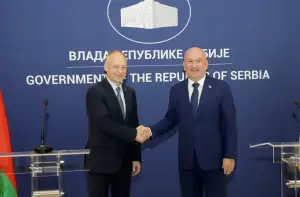 Belgrade, 11 July 2025
Belgrade, 11 July 2025Potential for improving cooperation with Belarus in many areas
-
 Požega, 5 July 2025
Požega, 5 July 2025Section of Pakovraće - Požega highway officially opened
-
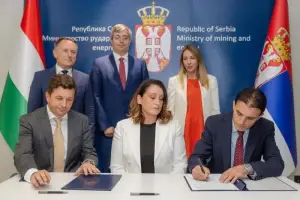 Belgrade, 2 July 2025
Belgrade, 2 July 2025Technical specifications defined for Serbia-Hungary oil pipeline
-
 Belgrade, 30 June 2025
Belgrade, 30 June 2025IMF confirms Serbia successfully implementing all agreed reforms
-
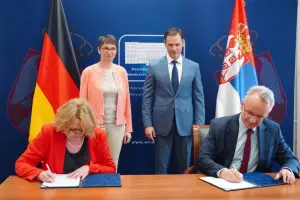 Belgrade, 27 June 2025
Belgrade, 27 June 2025Double Taxation Avoidance Agreement with Germany signed
-
 Kostolac, 25 June 2025
Kostolac, 25 June 2025Construction of Kostolac wind farm nearing completion

